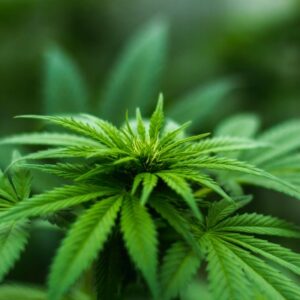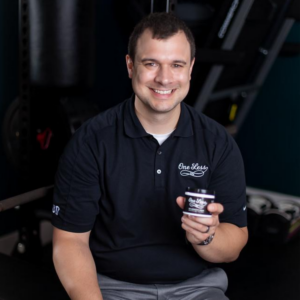 By: Matt Parks
By: Matt Parks
The surging popularity of a young cannabidiol (CBD) industry has inspired incredible success stories and with it, incredible misunderstanding among consumers. Whether you struggle from chronic pain, need some relief after a hard workout, or are looking for some stress relief, here are some answers to your CBD questions.
What’s the difference between hemp and marijuana?
Marijuana refers to the hemp plant that was cultivated by farmers in order to increase its medicinal effects from smoking, topical use, and consumption. This process has been performed by humans for thousands of years, but recently has been aided by greater knowledge of genetics, nutrition, indoor growing with artificial light, and an ever-growing list of advancements. Despite this, the general goal has remained the same for marijuana cultivation: enhance medicinal properties by increasing the quantity of cannabinoids (like tetrahydrocannabinol, or THC, and CBD) present in the plant.
THC is one of many cannabinoids in marijuana and hemp but is the chemical directly responsible for the high associated with marijuana. While natural hemp generally has below 0.3% THC, modern marijuana strains can boast over 30.0% THC.
Recently, people have realized many of the positive effects of marijuana originate not just from THC, but other cannabinoids found in the plant, the most notable of which is CBD.
Can CBD get you high?
While CBD acts on the same system as THC, it does not produce a high or any disorientation. CBD acts on the cannabinoid system found in your body and brain but has an entirely different effect than THC despite their similar chemical structure.
If you’re worried about getting high or failing a drug test, it’s vital to use a brand that employs third-party testing from an independent laboratory. This testing ensures what companies claim is in their product is accurate, so if they claim it has 100mg of CBD, there actually is. If they claim there’s no or small amounts of THC, the independent testing should back their claim up.
Important Note: Some cheaper drug tests look for the smaller parts that cannabinoids break down into inside the body instead of THC itself. These types of tests could flag a false positive for THC even for someone taking CBD products that contain 0.00% THC.
If they don’t utilize independent third-party lab testing that you can read on their website, steer clear, and use a different company.
The devil is in the details as they say, and it’s important to note that some types of CBD products actually contain THC in varying amounts.
Let’s dive in.
What are the different types of CBD and why do they matter?
When companies make their formulation for a tincture, cream, oil, or any other product, they first decide on the method to extract the important chemicals from the hemp or marijuana plant. What process they choose determines exactly what gets extracted from the plant and ends up on your shelf. The chemicals important to consumers include both the cannabinoids (including THC, CBD, and others), and terpenes (that have effects not yet well understood).
Full-spectrum CBD
Perhaps the most popular form of CBD, full-spectrum refers to products that contain the full array of both the cannabinoids and terpenes from the marijuana or hemp plant. This means full-spectrum carries the most potential benefit and also the most potential risk, especially as it contains varying amounts of THC. This variety has the potential to get you high or fail a drug test, especially if taken regularly or in large amounts. The benefits and risks involved with each cannabinoid and terpene are still being researched and should be treated as such.
Broad-spectrum CBD
This variety of CBD can be considered a refined version of full-spectrum, as it contains a diversity of cannabinoids and terpenes, but has the THC removed. In short, a great option for those looking for the benefits of full-spectrum without the risk of getting high or failing a drug test.
CBD isolate
With a name that fits exactly what it is, CBD isolate refers to CBD that has been completely isolated from all the other active ingredients of hemp or marijuana plant— CBD isolate is just CBD. Typically, isolate is extracted from hemp plant that already contains low levels of THC, and the chemical process removes the rest (not to be a broken record but still, check the testing!).
CBD isolate can be considered the safest option as there are less active ingredients that carry a chance for interaction with drugs and other negative side-effects. Further, you’ll never have to worry about getting high from taking too much.
In summary
The most important thing to keep in mind is that the CBD industry is still young and is not yet regulated the way medications are. This means you have to be extra diligent when it comes to informing yourself and ensuring whatever company you endorse employs independent laboratory testing to back up what it claims is in their product.
Decide if full-spectrum, broad-spectrum, or CBD isolate is right for you, and be sure to talk to your doctor if you have serious health conditions or are on any medications like blood thinners. Research has shown great promise, but there is still a lot of work to be done.
U.S PAIN FOUNDATION DOES NOT ENDORSE OR RECOMMEND THE USE OF ANY PARTICULAR MEDICATION, REMEDY, PRODUCT, PROCEDURE, OR THERAPY. INFORMATION IN THIS BLOG IS PROVIDED FOR EDUCATIONAL PURPOSES ONLY. ALWAYS SEEK THE ADVICE OF YOUR PHYSICIAN OR OTHER QUALIFIED HEALTH PROVIDER WITH ANY QUESTIONS YOU MAY HAVE REGARDING YOUR INDIVIDUAL MEDICAL CONDITION AND THE APPROPRIATE TREATMENT.
 During his decade as Vice President at Williams Medical Supply, Matt Parks’s efforts grew the company from a regional to national supplier while maintaining a steadfast promise to ensure new patients can be serviced. Understanding that his success was a direct result of building long-term relationships, he was imbued with a great appreciation for small business. Also during his time in medical supplying, he observed the rise of the opiate epidemic, a problem he knew stemmed in part from a lack of quality options in chronic pain and inflammation treatment. These experiences united seamlessly guiding his decision to create One Less CBD.
During his decade as Vice President at Williams Medical Supply, Matt Parks’s efforts grew the company from a regional to national supplier while maintaining a steadfast promise to ensure new patients can be serviced. Understanding that his success was a direct result of building long-term relationships, he was imbued with a great appreciation for small business. Also during his time in medical supplying, he observed the rise of the opiate epidemic, a problem he knew stemmed in part from a lack of quality options in chronic pain and inflammation treatment. These experiences united seamlessly guiding his decision to create One Less CBD.
